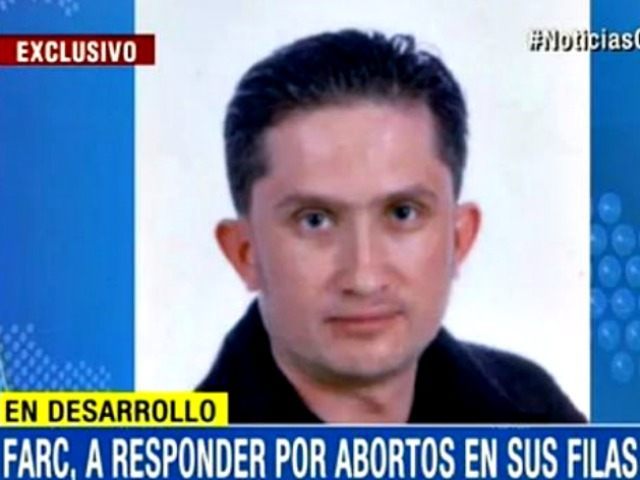Colombia is seeking an Interpol Red Alert against Héctor Albeidis Arboleda Buitrago, a FARC terrorist known as “The Nurse” suspected of carrying out nearly 500 forced abortions, many on child soldiers raped after being kidnapped and forced to fight for the Marxist group.
Buitrago is believed to be living in Madrid and seeking political asylum, implying that Colombia is seeking to imprison him for his Marxist ideals. The government of Colombia begs to differ, arguing that Buitrago was responsible for carrying out an established forced abortion policy for the Revolutionary Armed Forces of Colombia (FARC), a more than 50-year-old narco-terrorist group that remains the world’s wealthiest non-jihadist terrorist organization.
The formal legal request for Interpol to issue a Red Alert, which requires countries to arrest and extradite the person cited, quotes women explaining the details of their experience with Buitrago. One woman, who is not named in the document, says she believed she was about 7 or 8 months into her pregnancy when Buitrago performed an abortion on her. “I saw the baby come out, I saw he was well-formed, he had his little hands, I felt his heart beat for a minute,” the victim testifies, adding that, after that minute, Buitrago said, “We have to throw this baby in the garbage.”
The woman says she became pregnant after being recruited as a child soldier and told that, should she let a higher-ranking commander have sex with her, she would be allowed to go home. Instead, she was forced to continue to commit acts of terror during her pregnancy and after her abortion.
The evidence handed to Interpol, Spanish newspaper ABC adds, also accuses Buitrago of using the corpses of FARC terrorists to “teach anatomy classes,” forcing those he taught to dissect them.
The Interpol request follows the release of an official report by Colombian Attorney General Eduardo Montealegre on the FARC’s forced abortion policy. Montealegre states he has compiled 50 personal testimonies of forced abortions and has documented evidence for at least 150 forced abortions. “Forced abortion was a FARC policy, a policy which allowed the FARC not to lose female guerrillas as instruments of war,” he said in a press conference this week.
Abortion is only legal in Colombia only in cases of rape, when the life of the mother is in danger, or when a doctor determines the fetus will not survive childbirth, a policy implemented in 2006.
The FARC have used female terrorists since their establishment in the 1960s, and established a policy of kidnapping girls to use as child soldiers and force to engage in sexual acts with their male superiors. The policy preceded by decades a similar one by Nigerian jihadist terror association and Islamic State affiliate Boko Haram, which grew to global prominence after engaging in a series of mass kidnappings of hundreds of girls and women to be used as sex objects and suicide bombers.
The Buitrago case surfaces in the middle of a months-long “peace process” between the government of Colombia President Juan Manuel Santos and FARC leader Timochenko, currently exiled in Havana. In September, at a press conference with Cuban dictator Raúl Castro, the two sides announced the beginnings of a peace deal that would allow FARC terrorists to return to Colombia in exchange for renouncing violence. Key to this peace deal is the creation of a special court to handle FARC cases which would divide the crimes of individual terrorists into two categories: “political crimes” and “crimes against humanity.” Those found guilty of the former category of crimes would not have to serve time in prison. It is not clear whether Buitrago’s crimes would be considered “political.”
The FARC has threatened to reject the deal following the government’s decision to hold a referendum vote on accepting the peace deal. They have also demanded to be allowed to keep their weapons and not have to compensate the hundreds of thousands of victims hurt by the group in the past half-century.
A recent poll of Colombians found that, nationally, 60 percent of the Colombian people doubt that the FARC has entered the peace process in good will and has any intention of renouncing violence.
The peace process continues, however, as negotiators for both sides met in Havana on Thursday for a new round of talks. Representatives of the government described the process as being “on a good path,” though FARC negotiators insisted that the referendum was “politically and legally unsustainable.”

COMMENTS
Please let us know if you're having issues with commenting.